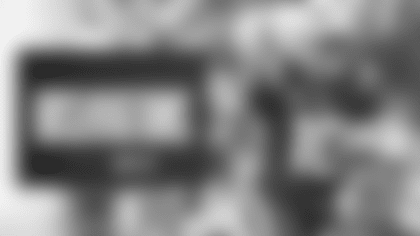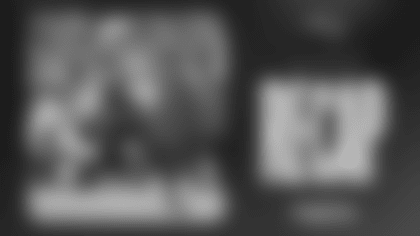KAPALUA, Hawaii (March 23, 2005) -- A proposal to make down-by-contact plays reviewable by replay was rejected by NFL teams.
The proposed change was perhaps the most important in a package of rules changes approved by the league's competition committee. It would have allowed the referee to use replay cameras to look at fumbles even though the whistle had blown, something that currently ends the play regardless of what the cameras might see.
It did get 20 of 32 possible votes but not the 24 required to implement it for the one year it was being proposed.
"It actually got a few more yes votes than I thought," said Atlanta general manager Rich McKay, the committee's co-chairman. "This is a big play. This is a turnover. We haven't heard the last of it."
McKay said he originally opposed the change, fearing it would cause injuries because some players would stop at the whistle and were in danger of being injured by others going after a loose ball. But he changed his mind after watching tape of 20 plays botched by officials over the past two seasons in which plays continued anyway.
"It's a split-second thing," he said. "These are game-changing plays. Change of possession is one of the most important things we deal with."
Many of the 12 teams that voted against the change are teams that always opposed replay, which last year was approved for a five-year period after going in year-to-year before that. They were joined by several others that simply opposed continuing the play after the whistle.
Even coaches with teams that voted for the change expressed some concern.
"You teach players that the whistle ends the play," Indianapolis coach Tony Dungy said. "It's a major change in their mind-set to get them to keep going."
Most of the rules changes this year were to emphasize safety after a season in which there was an increase in major injuries.
One rule tabled until the meetings in May would outlaw the so-called "horse-collar tackle," in which a defender grabs the back inside of an opponent's shoulder pads and rides a player down. Several of those tackles resulted in serious injuries last season, most notably Dallas safety Roy Williams' tackle of All-Pro receiver Terrell Owens of Philadelphia.
"Look for it in some form to be passed in May," McKay said. "The coaches are concerned with the language of it and how we can refine it."
Among those approved were a rule that will make illegal a peel-back block below the waist and from the back. Those blocks most often happen on screen passes and after interceptions.
The peel-back rule would have made illegal the high-profile play in 2002 in which a block by Tampa Bay's Warren Sapp injured Green Bay's Chad Clifton after an interception.
Also approved were two rules that mandate unnecessary roughness calls for blocks away from the play on punters or kickers, who now get the same protection as quarterbacks have had after an interception.
Voted down were changing the defensive pass interference rule from a spot foul to the 15-yard variety, as in the colleges, on long plays; placing two TV cameras by the goal lines for replay on questionable touchdowns; and eliminating the automatic first down from the 5-yard illegal contact plays by defenses.
Among those passed was eliminating the opportunity to stop the clock with a fourth timeout outside of the final two minutes of each half or overtime. That little-known option that stops the clock and is a 5-yard penalty actually hurt two teams last season, McKay admitted.
Also, when the clock is stopped by officials for a measurement or some other reason, the play clock will resume with however many seconds remained on it, unless it was under 10 seconds. In the past, the referee would reset it to 25 seconds even if more than that remained, a disadvantage for some teams trying to kill the clock.
If the play clock is under 10 seconds, it will be put back at 10 after the stoppage ends.
AP NEWS
The Associated Press News Service
Copyright 2005, The Associated Press, All Rights Reserved









































